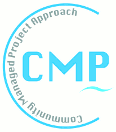COWASH Research
The CMP approach has been studied and analysed under several research projects including one PhD level research and three Master’s level research papers. The research papers are providing critical analysis and more in-depth information on impacts and challenges of CMP in order to further develop the practices and guidelines of CMP approach and support evidence based decision making. This section includes both academic research papers and more practical case studies on CMP.
CMP vs WMP by Beshah M behailu
Read more
Kaisa Kuismanen studied solar pumping from the hand dug well. She found out that solar pumping is a major opportunity to improve service levels. It is necessary to analyze the effectiveness for each scheme separately. In the study area, solar pumping might be a suitable trial system for a school in need of large quantities of water for drinking and sanitation use.
Read more
This research was conducted a young intern Atti Muriricho as part of here field experience she gained in COWASH from May 1, 2019 to July 10, 2019. Atti's research was supervised by the University of Copenhagen and Meaza Kebede from COWASH. Here is the report:
Read more
This is the Thesis done by Mr. Eelis Hemberg on the "Case of a water project (COWASH) in achieving Sustainable Development Goal 6".
Done in Aalto University on August 2021
The aim of the study has been to ascertain the
influence of SDG 6 (clean water and sanitation) on M&E processes, whether these
processes are encouraging effective data collection and responsive approaches in
project interventions, and whether the M&E systems at different strata are integrated
with one another seamlessly.
Read more
Policy Analysis of Ethiopia’s Rural Water Operation and Maintenance Policies, Thesis research by Esra Marvin from Aalto University.
The aim of this thesis was to investigate, if a push towards more advanced rural water systems, prompted by the SDG 6.1, has potential to backfire on rural communities through an in-crease in non-functionality.
Read more
In order to capture the essence of the CMP approach, case studies ranging from end user's perspective to federal level processes will be published here.
Read more
A number of academic research papers and case studies have been produced on CMP. This article includes some selected papers presenting analysis on the development, evolution and impacts of CMP.
Read more
Research on the CMP approach needs to be promoted, and for this purpose the COWASH project together with the Tampere University of Technology's Department of Chemistry and Bioengineering initiated a CMP research project with financial support from the Finnish "Society of Soil and Water Technology". The project was launched in January and it includes studies by research students at doctorate, masters and bachelors levels to critically analyse the CMP approach.
Read more
The CMP related research project (ReCMP) supported by Maa- ja vesitekniikan tuki ry (the unofficial translation: the Finnish Society of Soil and Water Technology) was launched in the beginning of 2012. The project has progressed well and is producing interesting and useful results well ahead the original time schedule.
Read more
After the results of the three M.Sc. theses and the one B.Sc. thesis were presented in a research workshop in Addis Ababa in last October, all the theses have now been finalized and published for wider audience. According to the research results, the CMP approach seems to be as efficient as the project reports from Amhara and Benishangul-Gumuz have shown. However, all the researchers are proposing several improvements to be taken into account in the future development of the CMP approach.
Read more

